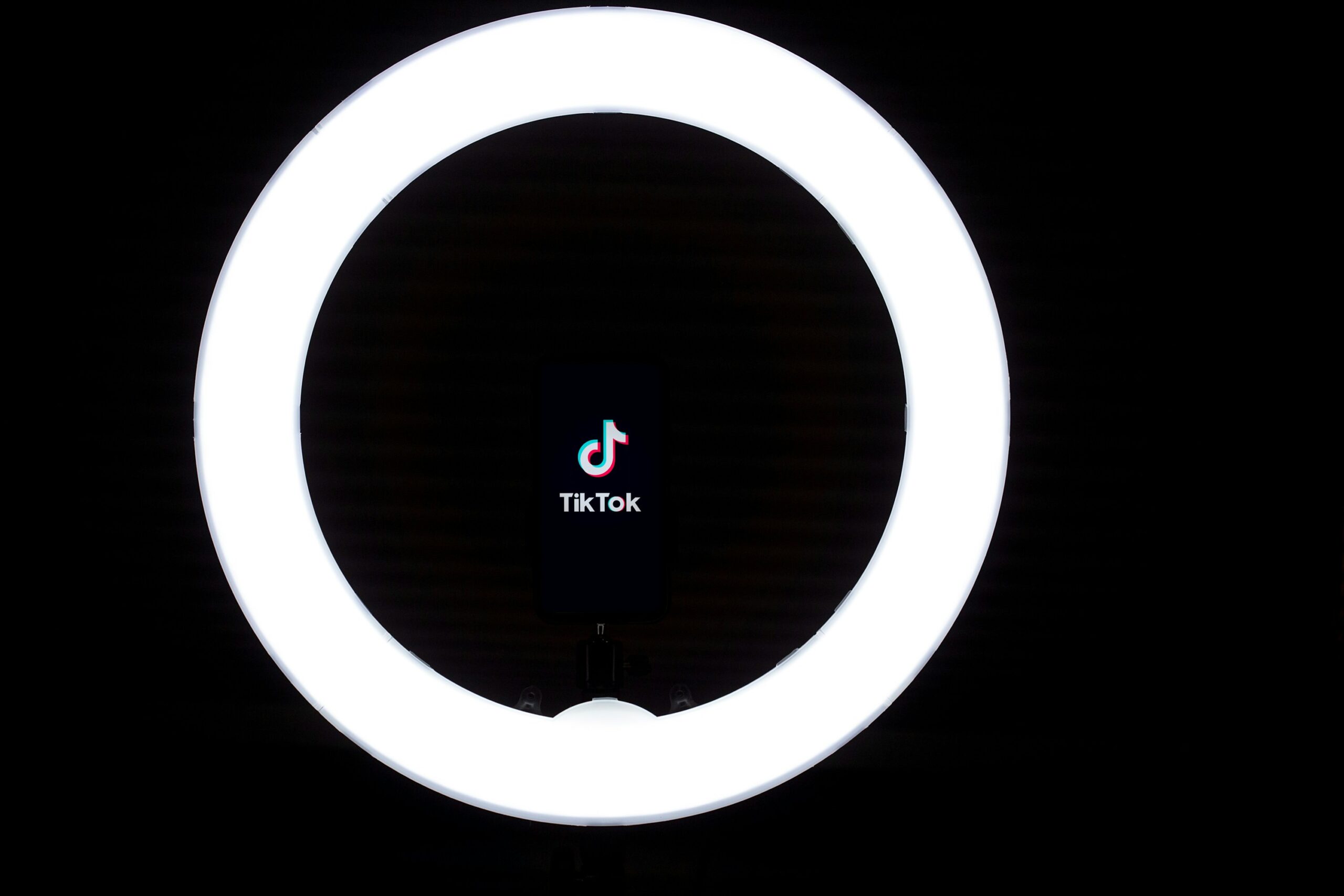Introduction to Scheduling TikTok Posts
In the world of social media, TikTok has emerged as a powerful platform for content creators and businesses alike. As the competition intensifies, mastering the art of scheduling TikTok posts can provide a significant edge. Scheduling posts allows creators to strategize their content effectively, ensuring that their message reaches the audience at optimal times. This practice is particularly beneficial for those aiming to build a consistent presence on the platform.
One of the primary advantages of scheduling TikTok posts is the ability to maintain a consistent posting schedule. Regular updates not only keep followers engaged but also assist in attracting new viewers. When content is published consistently, it enhances brand recognition, fosters loyalty, and can ultimately increase follower counts. Creators can plot a posting calendar in advance, allowing them to allocate specific times for various types of content, be it promotional material, trends, or educational snippets.
Additionally, scheduling posts on TikTok offers the opportunity to maximize audience engagement. By analyzing when their target audience is most active, creators can set their posts to go live during these peak hours. This strategic timing can lead to higher views, likes, and shares, propelling content to broader audiences thanks to TikTok’s algorithm. Creators can harness weekend leisure times or after-work hours to capture a larger segment of potential viewers.
Moreover, scheduling indeed saves valuable time in the content creation process. Content creators can batch-produce videos ahead of time, allowing for extensive planning, editing, and creative refinement. This not only enhances the quality of the uploaded videos but also alleviates last-minute pressures to produce content. In essence, by taking advantage of scheduling features, TikTok users can manage their online presence more efficiently, ultimately leading to better performance on the platform. Such practices are essential for anyone serious about leveraging TikTok for entertainment or business purposes.
Why Scheduling is Essential for TikTok Success
In the dynamic landscape of social media, effective scheduling of TikTok posts has become integral to achieving success as a content creator. One of the primary reasons for this is the need to understand peak engagement times. By analyzing user behavior and engagement metrics, creators can identify when their audience is most active. Scheduling posts during these peak times can significantly increase visibility, ensuring that content reaches the maximum number of viewers.
Moreover, the TikTok algorithm favors consistent and timely posting. Regular updates signal to the platform that a creator is actively engaged, which can enhance the chances of the content being featured on the ‘For You’ page. By strategically planning and scheduling content, creators can leverage the algorithm to their advantage, fostering greater reach and engagement over time. This proactive approach allows for a stronger connection with the audience, ultimately translating to improved growth metrics.
Another essential aspect of scheduling is the opportunity it provides for experimentation. Creators can try out various posting times and formats to determine what resonates best with their audience. This flexibility allows for a data-driven approach to content creation, where insights gathered from previous posts can inform future scheduling. For instance, if a particular style or format garners higher engagement at certain times, it can then be replicated and scheduled accordingly.
Furthermore, regular content updates contribute not only to follower growth but also to building a loyal community. By maintaining a consistent posting schedule, creators affirm their commitment to their audience, keeping viewers engaged and looking forward to new content. In essence, the art of scheduling TikTok posts is a powerful strategy that enhances visibility, optimizes engagement, and sustains continuous growth in a highly competitive environment.
Tools to Schedule Your TikTok Posts
In the rapidly evolving landscape of social media, scheduling posts on platforms like TikTok has become an essential practice for content creators and brands alike. Several tools and applications have emerged to facilitate this process, each offering unique features tailored to meet different user requirements. Understanding these tools can significantly enhance your TikTok strategy.
One of the most popular scheduling tools is Hootsuite, which allows users to manage multiple social media accounts from a single platform. With its user-friendly interface, Hootsuite supports scheduling TikTok posts conveniently, enabling users to plan their content weeks in advance. The analytics feature is particularly beneficial, offering insights into post performance and audience engagement.
Another notable option is Buffer, known for its simplicity and efficiency. Buffer’s scheduling feature allows creators to queue content for multiple social platforms, including TikTok. It is especially favored for its straightforward setup process and the ability to analyze when the target audience is most active, optimizing posting times for maximum reach.
For those looking for something more specialized, Later focuses on visual content. While it is predominantly known for Instagram, Later recently expanded its features to include TikTok scheduling. Users can visually plan their posts, which is advantageous for maintaining a cohesive aesthetic on their profiles. Later’s timeline view simplifies the scheduling process, making content planning a visual experience.
When comparing free versus paid options, it’s essential to consider your scheduling needs. Free tools may offer basic functionalities suitable for beginners or casual users, while paid versions typically provide advanced analytics, multiple accounts management, and enhanced support features. In selecting your tool, evaluate which functionalities align best with your TikTok marketing strategy, ensuring efficiency and effectiveness in your posting routine.
How to Schedule TikTok Posts Using Third-Party Tools
Scheduling TikTok posts can significantly enhance your social media strategy, allowing for consistent interaction with your audience at optimal times. Several third-party tools are available that simplify this process, making it easy to plan content in advance. The following steps detail how to schedule your TikTok posts using these tools effectively.
First, select a reputable third-party scheduling tool, such as Buffer, Later, or Hootsuite. Visit the chosen tool’s website and create an account if you do not already have one. During the sign-up process, you will be prompted to connect your TikTok account. Ensure you follow all authentication steps precisely, as this will grant the scheduling tool access to your TikTok profile.
Once your account is set up and connected, the next step is to create your content. Most scheduling tools offer an intuitive interface where you can upload your pre-edited TikTok videos. It is essential to adhere to TikTok’s video specifications, such as aspect ratio and length, to ensure your content displays correctly on the platform. Additionally, consider crafting engaging captions and employing relevant hashtags to enhance the visibility of your posts.
After adding the video and accompanying text, utilize the scheduling feature provided by the tool. Select the date and time you wish to publish your content. It is advisable to analyze your past TikTok insights to determine when your audience is most active, thereby increasing the likelihood of higher engagement rates.
Before finalizing your scheduled post, double-check all video settings and descriptions to ensure accuracy and appeal. After a thorough review, confirm the scheduling, and your content will be automatically published at the designated time. This efficient process not only saves time but also ensures a steady stream of content that aligns with your audience’s viewing habits, ultimately mastering the art of scheduling TikTok posts.
Best Practices for Editing TikTok Videos Before Scheduling
Editing TikTok videos effectively plays a crucial role in maximizing the appeal and engagement of your content. One of the primary aspects to consider is the optimal video length. TikTok users gravitate towards short, snappy videos. Ideally, aim for a duration of 15 to 60 seconds, which aligns well with the platform’s fast-paced nature. By keeping your videos concise, you can capture and maintain viewers’ attention, ultimately leading to higher engagement rates.
Additionally, eye-catching visuals are essential in drawing viewers in from the endless scroll on the platform. Utilize bright colors, dynamic transitions, and captivating effects to make your content stand out. Consider the use of trending music and sound bites, as these elements not only enhance the viewing experience but also increase the likelihood of your video being shared and reshared across the platform.
In crafting your captions, aim for language that resonates with your target audience. Engaging captions can encourage interaction, be it through likes, comments, or shares. Incorporating questions or calls to action invites viewers to partake in conversations, fostering a sense of community. Moreover, clear and concise captions work best, as they allow your viewers to quickly grasp the essence of your video.
It’s also essential to consider the significance of hashtags when preparing your TikTok posts. Utilizing relevant and strategically chosen hashtags can greatly enhance the discoverability of your content. Aim to include a mix of popular hashtags, niche-specific ones, as well as branded hashtags. This approach not only broadens your audience reach but also ensures that the right viewers find your videos, tailored to their interests.
Analyzing Performance: Metrics to Track After Scheduling
Once you have scheduled your TikTok posts, it is essential to analyze their performance meticulously. Understanding how your content resonates with audiences allows you to make informed decisions in future scheduling and content strategies. There are several key metrics that every TikTok user should monitor after publication.
The first metric to consider is the number of views a post receives. This number provides insight into the reach of your content and can indicate whether your scheduling time aligns with when your target audience is most active. A higher view count may suggest that your hashtags, captions, and timing are effectively attracting users’ attention.
Next, likes and shares are crucial indicators of engagement. Likes can reflect audience approval, while shares indicate that viewers find your content sufficiently compelling to share with their own networks. A substantial number of likes can also enhance the visibility of your post, as TikTok’s algorithm recognizes popular content. Tracking these figures can help you identify which type of content resonates more with your viewers and can influence your future content strategy.
Another vital aspect to analyze is follower growth. After a successful post, a noticeable increase in followers suggests that your content has effectively connected with viewers, encouraging them to engage more with your profile. Monitoring follower growth in conjunction with post performance can help you understand what content is driving interest and attracting new audiences.
Finally, utilizing additional metrics, such as comments and profile visits, can deepen your understanding of audience interaction. Comments can provide direct feedback on what viewers appreciate or want to see more of. By methodically analyzing these metrics, users can continuously refine their TikTok content strategies and optimize their post scheduling for future success.
Troubleshooting Common Issues When Scheduling Posts
When scheduling posts on TikTok, users may encounter several common issues that can hinder their experience. One prevalent problem is scheduling conflicts. These conflicts may occur if users attempt to schedule multiple posts for the same time slot, leading to a failure in posting. To resolve this, it is important to ensure that each scheduled post has a unique time allocation. Users can utilize the calendar function to visually inspect their planned posting schedule, avoiding overlaps that could compromise the visibility of their content.
Another frequent issue is posting failures, which can happen for various reasons, including app glitches or connectivity issues. If a scheduled post does not go live as intended, the first step is to verify the internet connection and ensure that the TikTok app is up to date. Checking for updates can resolve potential bugs that may interfere with the posting process. If the problem persists, users should consider reviewing TikTok’s server status, as scheduled posts might fail due to temporary outages on the platform.
Additionally, users need to be aware of platform-specific limitations. For instance, TikTok has guidelines on the frequency of posts, and exceeding these limits could result in delays or removal of scheduled content. It is wise to familiarize oneself with TikTok’s community guidelines to ensure all posts comply with these rules. Furthermore, users should monitor their account’s analytics to gain insights into peak engagement times, allowing for optimal scheduling based on audience activity.
By anticipating these challenges and employing effective troubleshooting strategies, users can enhance their scheduling experience on TikTok. Each of these tips empowers users to navigate obstacles seamlessly, ensuring that their content reaches their audience at the right time.
Engaging with Your Audience Post-Scheduling
Once your TikTok posts are scheduled and go live, the importance of engaging with your audience cannot be overstated. Engagement serves as a critical component of maintaining and growing your presence on the platform. When followers see a consistent stream of content, their interest is piqued, but meaningful interaction is what truly captivates them. Consequently, responding to comments promptly and authentically can create a thriving community around your brand.
One effective strategy for enhancing audience engagement is to monitor the comments section of your videos actively. As soon as a post is published, take some time to respond to the comments. Whether it’s thanking viewers for their positive feedback or addressing any questions they may have, timely responses foster a sense of community. This not only shows that you value your audience’s input but also increases the likelihood of individuals returning to your content, eager to participate in future discussions.
Moreover, employing interactive elements such as polls or challenges can significantly enhance audience interaction. Inviting your followers to take part in contests or solicit their opinions on upcoming content can lead to increased engagement levels. By encouraging your audience to contribute their thoughts, you turn passive viewers into active participants, significantly enriching their experience and connection with your brand.
Additionally, using TikTok’s features, like duet or stitch functionalities, encourages engagement beyond mere comments. By prompting users to create their own content in response to yours, you facilitate conversations and community building. This not only serves to expand your reach but also positions your brand as approachable and interactive.
In conclusion, effective engagement following the scheduling of posts is essential for sustaining audience interest on TikTok. By leveraging timely responses, interactive elements, and user-generated content, you can create a vibrant community that continually engages with your material, ensuring long-term success on the platform.
Conclusion: Start Scheduling Today for a Stronger TikTok Presence
In today’s fast-paced digital environment, effective timing and consistency are essential for maximizing engagement on platforms like TikTok. Throughout this guide, we have delved into the numerous benefits of scheduling TikTok posts as a strategy to enhance your online presence. By identifying the optimal times for posting, utilizing analytics to assess audience behavior, and implementing content calendars, creators can streamline their efforts and maintain a steady flow of videos.
Moreover, scheduling not only alleviates the stress of last-minute posting but also enables users to focus on creating high-quality content that resonates with their target audience. Integrating scheduling tools into your workflow can significantly augment your productivity, allowing you to concentrate on creativity while ensuring consistent engagement with your followers. This structured approach aids in capturing viewers’ attention, thereby facilitating organic growth and retention on the platform.
As the landscape of social media continues to evolve, adapting to these changes by adopting practical scheduling techniques will set you apart in a competitive environment. Readers are encouraged to take proactive steps in implementing the discussed scheduling strategies to bolster their TikTok presence. Whether you are a novice content creator or an experienced influencer, investing time in scheduling your posts can yield substantial dividends in terms of audience interaction and overall performance metrics.
Now is the time to put this knowledge into action. Begin experimenting with different scheduling methods, analyze the results, and refine your strategy accordingly. By establishing a well-planned posting schedule, you will be well on your way to captivating a larger audience and achieving sustained success on TikTok.

We share information about current trends and stories of people all around the world.



